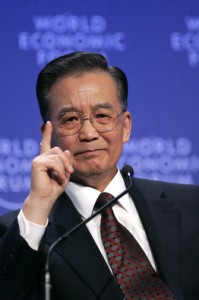 At the 45th Annual World Economic Forum in Davos, Switzerland, it was announced in a keynote speech by the Premier of the People’s Republic of China, Li Keqiang, China will be able to sustain slower economic growth without having to suffer from a “hard landing.”
At the 45th Annual World Economic Forum in Davos, Switzerland, it was announced in a keynote speech by the Premier of the People’s Republic of China, Li Keqiang, China will be able to sustain slower economic growth without having to suffer from a “hard landing.”
The announcement was made just a few days after Chinese government officials reported the expansion of their gross domestic product by 7.4% in 2014. China set a goal earlier in the year for gross domestic growth that was missed by only 0.1%. That being the case, China is now experiencing their slowest economic growth in over 24 years.
“The Chinese economy will face downward pressures in 2015,” Li said, “but the Chinese economy will not head for a hard landing.” Li went on to mention that the cause of this decrease in growth could be a side effect of the global economy’s current status. However, he expects China to still play a substantial part as the global marketplace looks to rebound. A 7% growth rate is able to produce $800 billion in annual increases, which remains higher than the recorded growth rate from five years past.
Li reported that China, even with the weakened rate of growth, has no plans on implementing any new stimulus plans, but will instead support growth through structural reforms. “We will move towards the path of reforms. This way we can shift gears without losing momentum and achieve medium- to high-speed growth, and medium- to high-level developments,” said Li.
Li concluded his speech by saying that the Chinese government will be preparing the nation to “embrace the new normal” of a non-export led economy by shifting to a more consumer-based model. Targeted investments for healthcare, clean energy, and small- and medium-sized businesses backings will better support job growth, especially for younger generations.
Economist Nouriel Roubini, who attended the conference, was quoted in a recent interview saying he expects Chinese growth rates to reach lows of 6% next year. But Li’s statements make it clear that China is refocusing its efforts on domestic growth. As more and more countries are demanding Chinese currencies to settle trades and investments, it seems the course for Chinese growth is set. Though they are committed to the creation of internationalized currency, China is okay with that being a long-term process for the time being.














